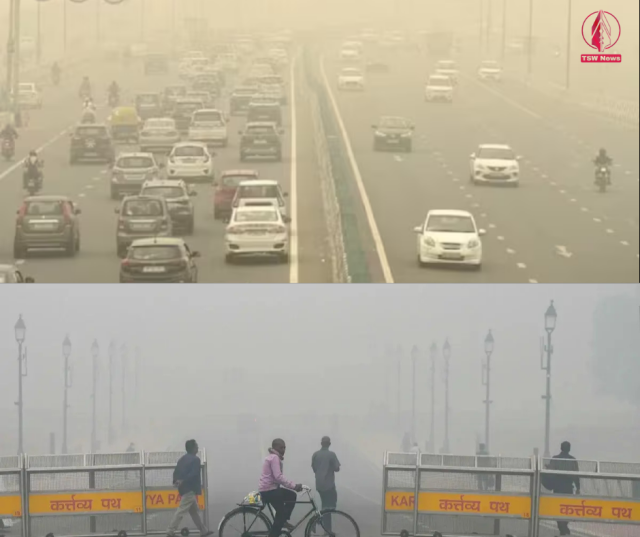Delhi Tightens Anti-Pollution Measures as AQI Drops Amid Cold Wave
- Posted on December 16, 2024
- News
- By Arijit Dutta
- 84 Views
Delhi-NCR enforces GRAP-3 as AQI reaches ‘very poor’ amid a cold wave. Key measures include bans on non-essential construction and polluting vehicles, alongside intensified dust control. Low temperatures worsen pollution dispersion, raising health concerns for vulnerable groups. Authorities forecast slight weather improvement, but challenges persist due to continued cold conditions.

Delhi-NCR has intensified its anti-pollution efforts by implementing GRAP-3 (Graded Response Action Plan), following a sharp rise in pollution levels. On Monday, the Air Quality Index (AQI) crossed into the ‘very poor’ category, recording 351. The measures coincide with a severe cold wave, with temperatures plunging to 3.5°C in some areas, exacerbating air quality issues.
Under GRAP-3, several stringent measures are in place to combat pollution. Key restrictions include a ban on non-essential construction and demolition activities and a prohibition on petrol vehicles failing BS-III norms and diesel vehicles below BS-IV standards across Delhi and NCR cities like Gurugram and Ghaziabad. Diesel generator sets are restricted to emergency uses only, while mechanised sweeping and water sprinkling are being employed to reduce dust pollution.
The cold weather has compounded pollution challenges, as lower temperatures and reduced wind speeds trap pollutants closer to the ground. The authorities are particularly concerned about the health impacts on vulnerable populations, including children, the elderly, and individuals with respiratory issues.
Additionally, exemptions from the construction ban are provided for critical projects, such as those related to national security and public infrastructure. These measures aim to reduce emissions from key contributors like vehicles, dust, and diesel generators.
Also Read: Supreme Court Urges India’s Youth to Shun Drug Abuse
While pollution levels remain a pressing issue, weather forecasts suggest a slight improvement in conditions, with daytime temperatures expected to rise to 23°C. However, the cold wave is likely to persist, making it challenging to alleviate pollution levels significantly in the near term.




